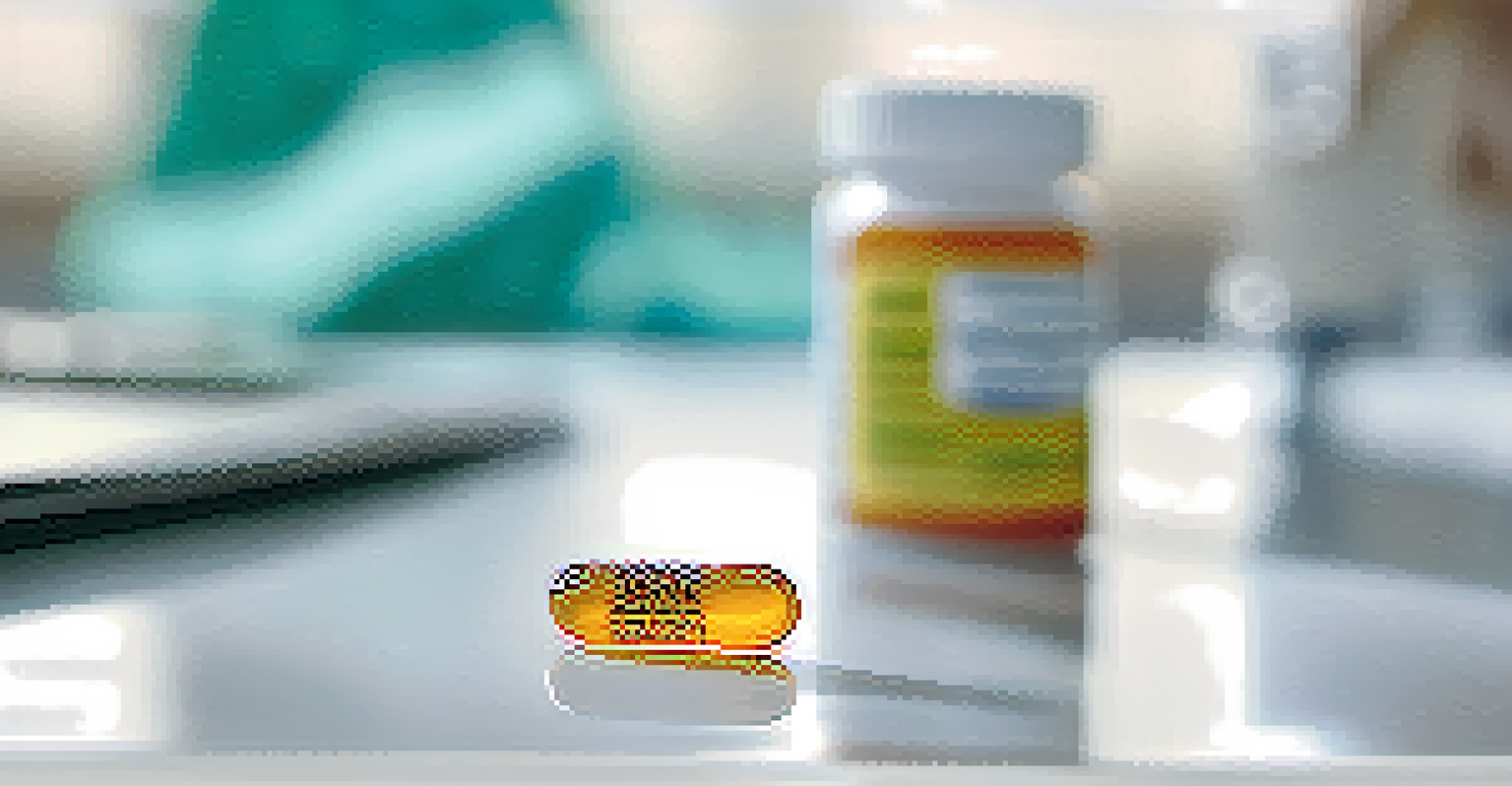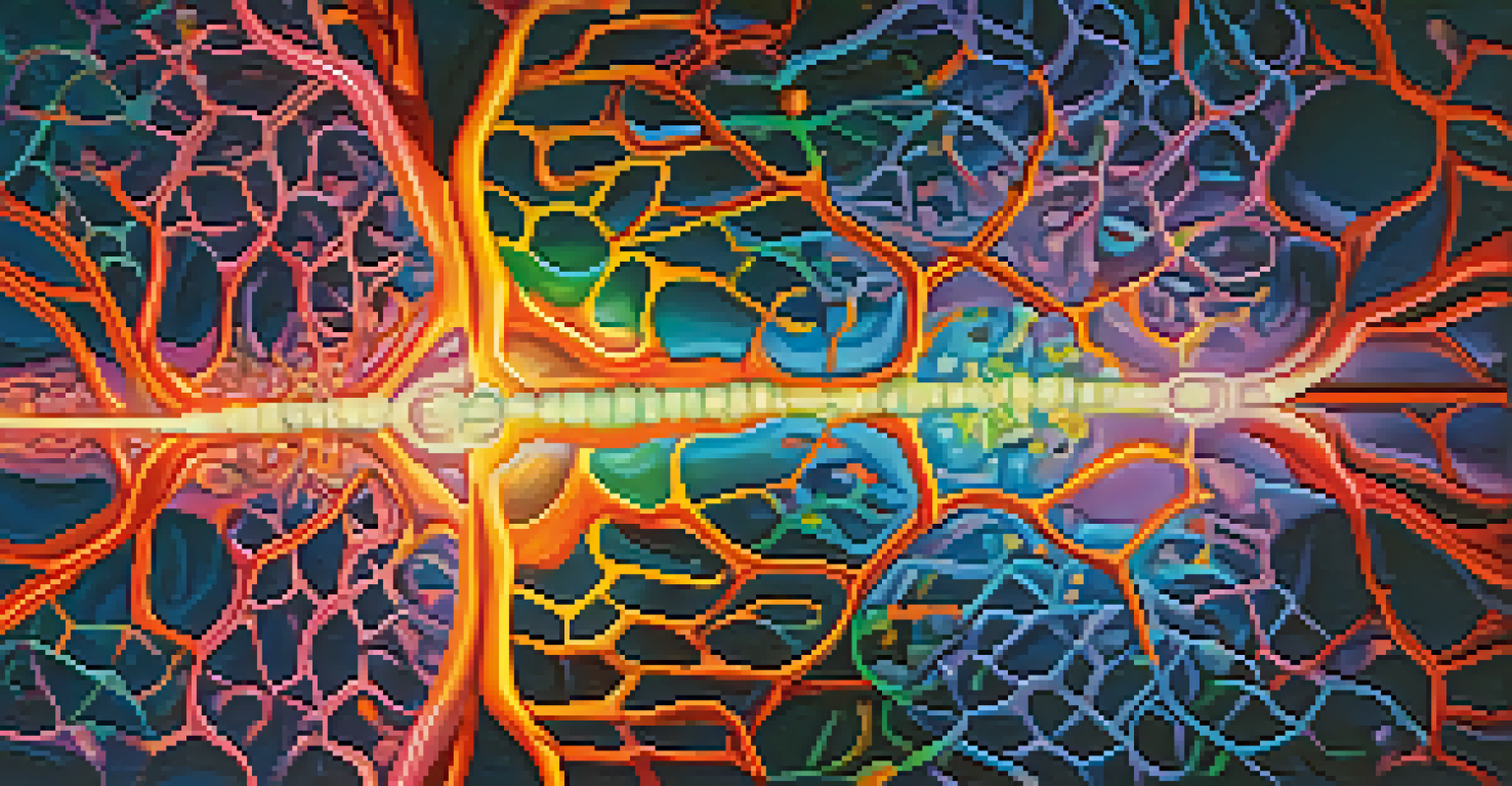The Science Behind Placebo and Hallucinogen Effects

What Is the Placebo Effect and Why Does It Matter?
The placebo effect is a fascinating phenomenon where a person experiences real changes in their health after receiving a treatment that has no therapeutic effect, like a sugar pill. It highlights the power of the mind and belief in influencing physical health. This effect is not just a quirky side note in medicine; it plays a crucial role in clinical trials, helping researchers compare the efficacy of new drugs against patients' expectations.
The greatest medicine of all is to teach people how not to need it.
Imagine you're at a magic show, and the magician makes a coin disappear. You know it’s a trick, yet you’re captivated, believing in the illusion. Similarly, in the case of the placebo effect, the brain can create real responses based on expectations. This can lead to improvements in symptoms, pain relief, and even recovery, simply because the individual believes they are receiving treatment.
Moreover, the placebo effect varies among individuals, influenced by factors like personality, cultural background, and previous experiences. This variability makes it a compelling area of study in both psychology and medicine, as understanding it could unlock new ways to enhance treatment efficacy and patient care.
The Role of Expectation in Placebo Responses
Expectations are powerful drivers of the placebo effect. When someone believes they are receiving a treatment that will help them, their brain can trigger real physiological changes. For example, if a patient is told a new pill will relieve their pain, their body may respond as if the pain relief is genuine, even if the pill is just a placebo.

This concept is akin to anticipating the taste of your favorite dish; just thinking about it can cause your mouth to water. Similarly, the brain's anticipation of healing can stimulate the release of natural painkillers, like endorphins, creating a tangible effect. This demonstrates how our mental state can have a profound impact on our physical well-being.
Power of Mind in Healing
The placebo effect demonstrates how belief and expectation can lead to real health improvements, showcasing the mind's influence on physical well-being.
Research has shown that the more a patient trusts their doctor and believes in their treatment, the stronger the placebo effect tends to be. Thus, the doctor-patient relationship is critical in harnessing this phenomenon, making communication and empathy essential components of effective healthcare.
What Are Hallucinogens and Their Effects?
Hallucinogens are a class of substances that profoundly alter perception, mood, and cognitive processes. Common examples include LSD, psilocybin (found in magic mushrooms), and mescaline. These substances can lead to experiences that feel intensely real, often blurring the lines between reality and imagination, which is a crucial aspect of their psychological impact.
The mind is everything. What you think you become.
Think of hallucinogens as a key that unlocks different doors in the mind. When taken, they can lead to vivid visual and auditory hallucinations, altered thinking, and a sense of connection to something greater than oneself. While many view these effects as purely recreational, there is growing interest in their potential therapeutic benefits, particularly in treating conditions like PTSD and depression.
Interestingly, the experiences induced by hallucinogens can overlap with the placebo effect, particularly in the context of set and setting—the environment and mindset in which the substance is taken. A supportive and safe environment can enhance the effectiveness of hallucinogens, making the individual more receptive to the experience, much like how a positive mindset can amplify the placebo response.
The Brain's Role in Placebo and Hallucinogen Responses
The brain is at the core of both placebo and hallucinogen effects, acting as the control center for how we process experiences and sensations. Neuroimaging studies have shown that when someone receives a placebo, areas of the brain associated with pain relief and reward are activated, similar to when they take actual medication. This reveals just how powerful our mental perceptions can be.
On the other hand, hallucinogens also impact brain activity but in a different way. They often increase connectivity between different brain regions, leading to a breakdown of normal patterns of thought and perception. This can create a sense of unity and interconnectedness, often described by users as a spiritual experience.
Therapeutic Potential of Hallucinogens
Hallucinogens like psilocybin show promise in treating mental health conditions, highlighting their potential when combined with supportive therapies.
Both phenomena illustrate the brain's remarkable ability to reshape our experiences based on expectations and substances. Understanding these processes not only sheds light on human consciousness but also opens up potential avenues for new treatments in mental health and pain management.
Comparing Placebo and Hallucinogen Effects
While the placebo effect and hallucinogen effects may seem distinct, they share common ground in their reliance on the brain's interpretation of experiences. Both highlight the importance of context and expectation in shaping human perception. For instance, a person may experience profound insights or emotional breakthroughs under the influence of hallucinogens, similar to the emotional relief some feel from a placebo.
Consider a person walking in a beautiful forest. The serene environment can enhance feelings of peace, whether they are sober or under the influence of a hallucinogen. Similarly, a placebo administered in a comforting setting can amplify its effectiveness, proving that the environment plays a significant role in both cases.
This comparison opens up intriguing questions about how we can leverage the power of the mind to improve health outcomes. By harnessing the mechanisms behind both effects, researchers could develop new therapies that integrate the benefits of expectation and altered states of consciousness.
The Therapeutic Potential of Placebo and Hallucinogens
Both placebo and hallucinogens hold significant therapeutic potential, especially in the realm of mental health. Recent studies have shown that psilocybin can lead to dramatic improvements in depression and anxiety, while the placebo effect can enhance the efficacy of traditional treatments. This suggests that combining these approaches could yield powerful results for patients.
Imagine a patient suffering from chronic pain, who, during a clinical trial, receives a placebo but believes it’s an effective painkiller. Their brain may produce natural pain-relieving chemicals, leading to actual pain relief. Similarly, when combined with supportive therapy, hallucinogens have shown promise in treating stubborn mental health issues, offering new hope where conventional methods have failed.
Ethical Challenges in Treatment
Both placebo and hallucinogen use raise ethical concerns, particularly regarding informed consent and patient safety, necessitating careful research and practice.
As research continues to evolve, the integration of these effects into treatment plans could revolutionize how we approach health and wellness. By understanding and harnessing the mind's power, healthcare providers could offer more effective and holistic care to their patients.
Challenges and Ethical Considerations
While the placebo effect and hallucinogen use show great promise, they also present significant challenges and ethical concerns. For placebos, the ethical dilemma lies in the use of deception; patients may be unaware they’re receiving a placebo, raising questions about informed consent. This is a crucial consideration in both clinical trials and everyday medical practice.
In the case of hallucinogens, there are concerns about safety, legality, and potential for misuse. While they may offer therapeutic benefits, the risk of adverse effects or triggering underlying mental health issues cannot be ignored. Therefore, it's essential to conduct research responsibly and ensure that treatments are administered in controlled environments.

Navigating these challenges requires an open dialogue between researchers, practitioners, and patients. By fostering transparency and ethical practices, we can harness the benefits of these phenomena while prioritizing patient safety and trust.